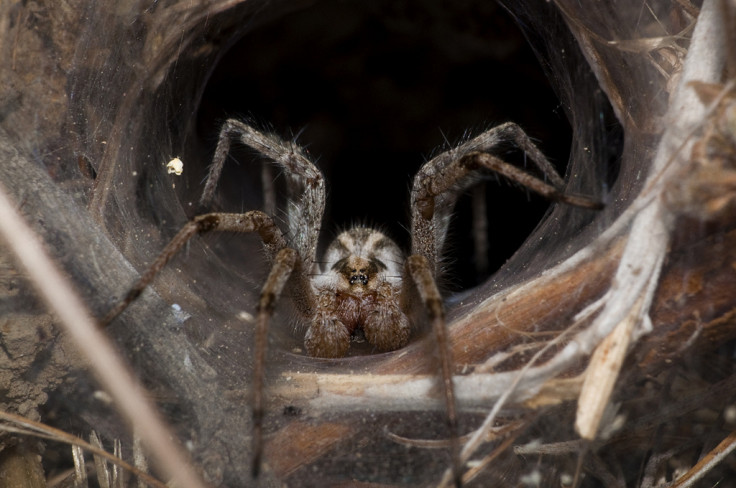Australia: Giant funnel-web spider captured and handed to Australian Reptile Park for venom-milking
The biggest male funnel web we've ever seen has been handed in to The Australian Reptile Park - check out how YOU can help to save lives by heading to www.reptilepark.com.auLearn how to safely catch up funnel webs so we can milk them to create antivenom! There has been no known deaths from a funnel web bite since 1982 when our antivenom program was implemented!!
Posted by The Australian Reptile Park on Sunday, January 24, 2016
A giant funnel-web spider has been handed over to the Australian Reptile Park for venom-milking. The largest specimen ever given to them has a huge leg span of 10cm, and its venom will be milked in an attempt to create an anti-venom.
The deadly spider species has caused 13 deaths in Australia over the past 100 years, and this individual – nicknamed 'Big Boy' – is the largest to be captured and handed to scientists. The Reptile Park encourages the public to try and catch them, so that they can milk their venom and produce an anti-venom.
"There might be one at a museum, but this is the biggest one we've had in our venom programme," Billy Collett, from the Australian Reptile Park, told the BBC. "We get them into a defence position and with a glass pipette we vacuum the venom right off their fangs."
The spider was collected by a "good Samaritan" in Newcastle, New South Wales. It is reported that Big Boy had venom dripping from its fangs as it was captured.
Roughly 500 funnel-web spiders are currently being milked at the Australian Reptile Park. This recently caught individual is the biggest, with a leg span similar to the length of the average human tongue (10cm).
The venom is milked by forcing the spider into a defensive stance by manoeuvring the glass pipette towards them. Once the venom begins to drip, a small vacuum sucks it up. Each spider is milked once a week.
Around 3,000 milking's are needed to make enough venom for an anti-venom. Between 200 and 300 can be milked every year, so the park is encouraging the public to catch the funnel-webs for them.
"Funnel-web spiders only live for 12 months so we're constantly needing to restock our males," said Liz Vella, curator at Australian Reptile Park. "They are a feisty species of spider and can be expected to stand their ground and defend themselves. For that reason we encourage adults to educate children that, should they locate a spider of any kind, parental assistance be provided in the capture."
The sharp bite from a funnel-web spider can pierce nails and even shoes. It has been known to continuously bite until it has been physically dislodged or shaken off.

© Copyright IBTimes 2025. All rights reserved.






















